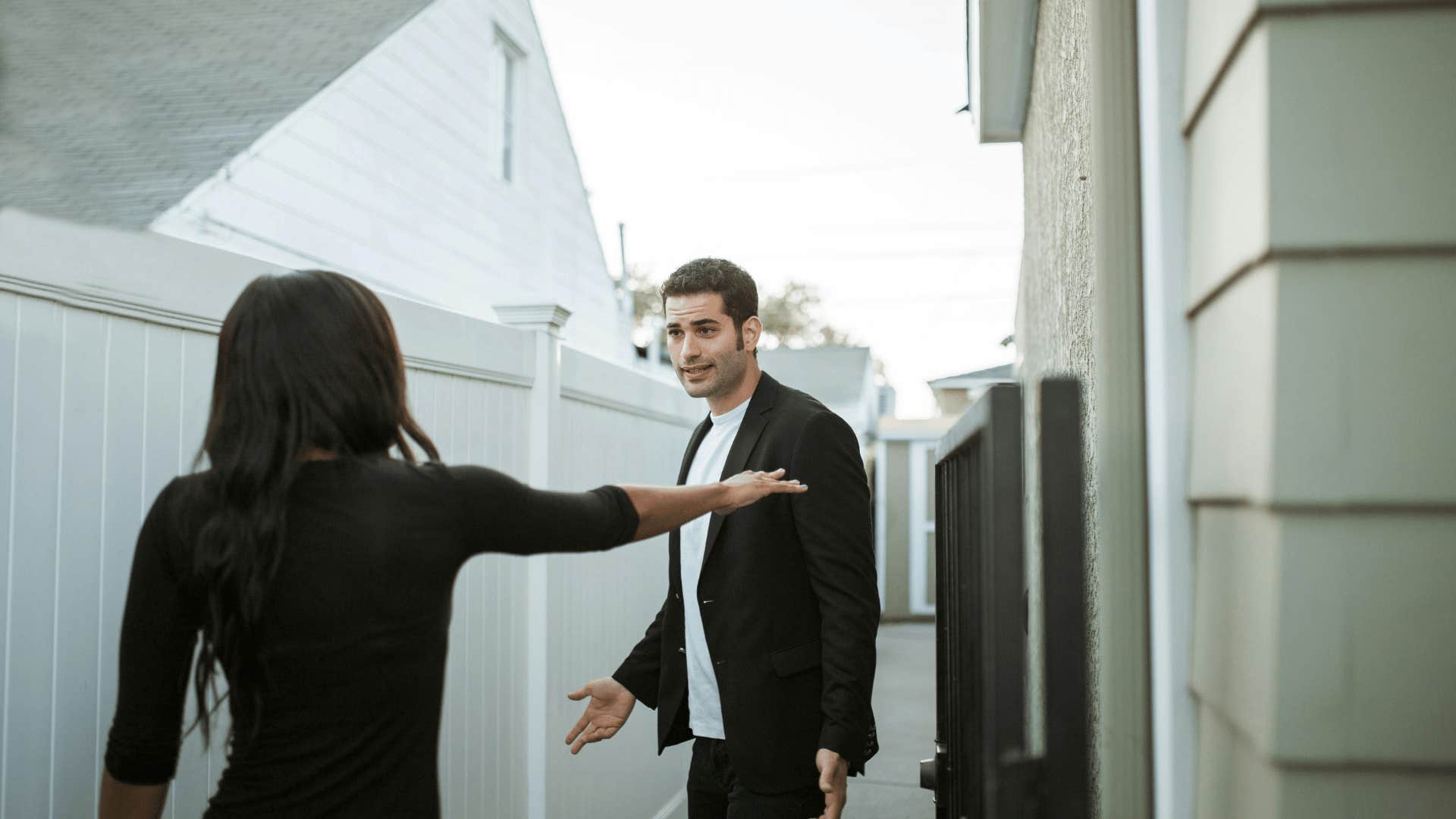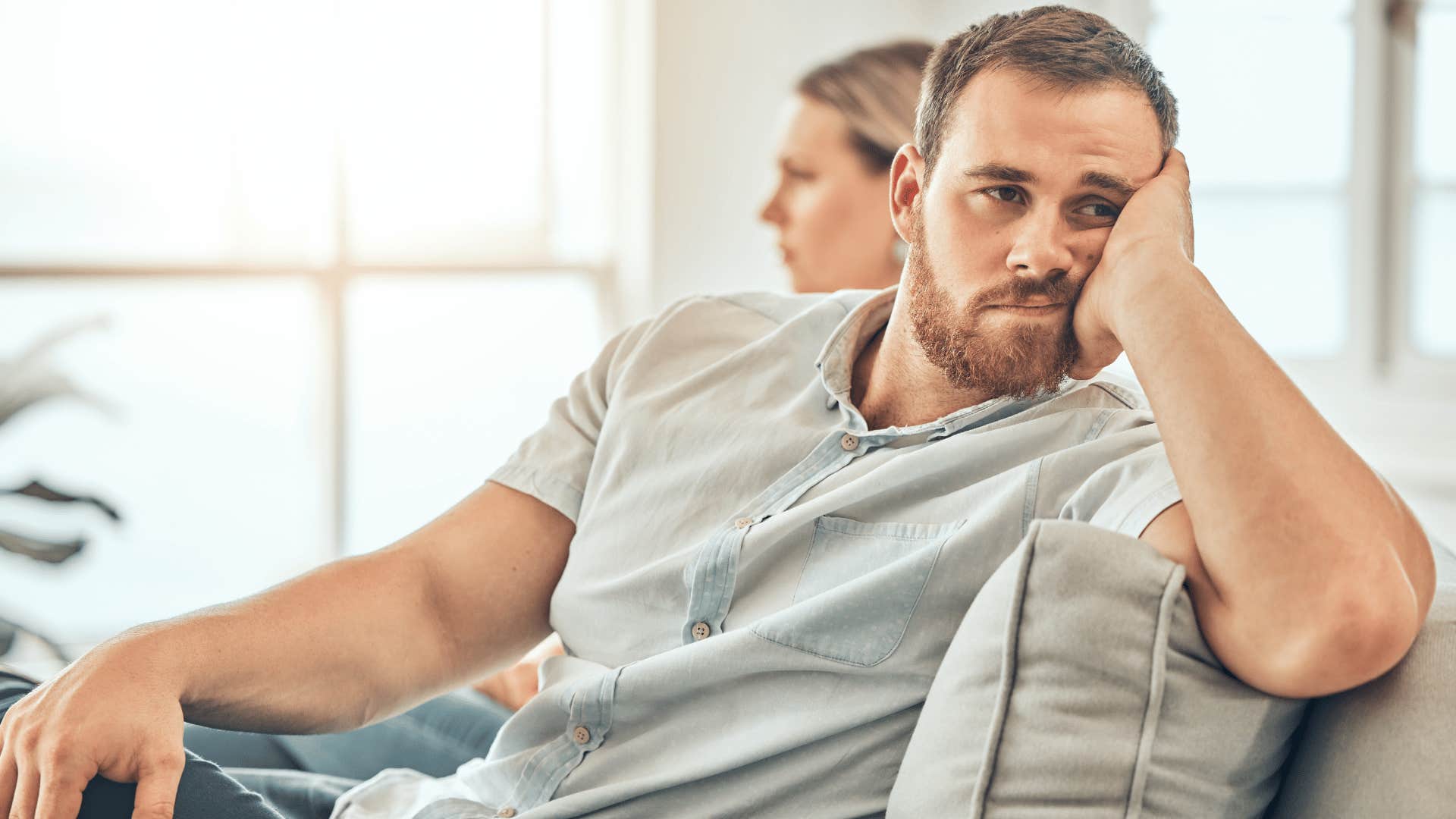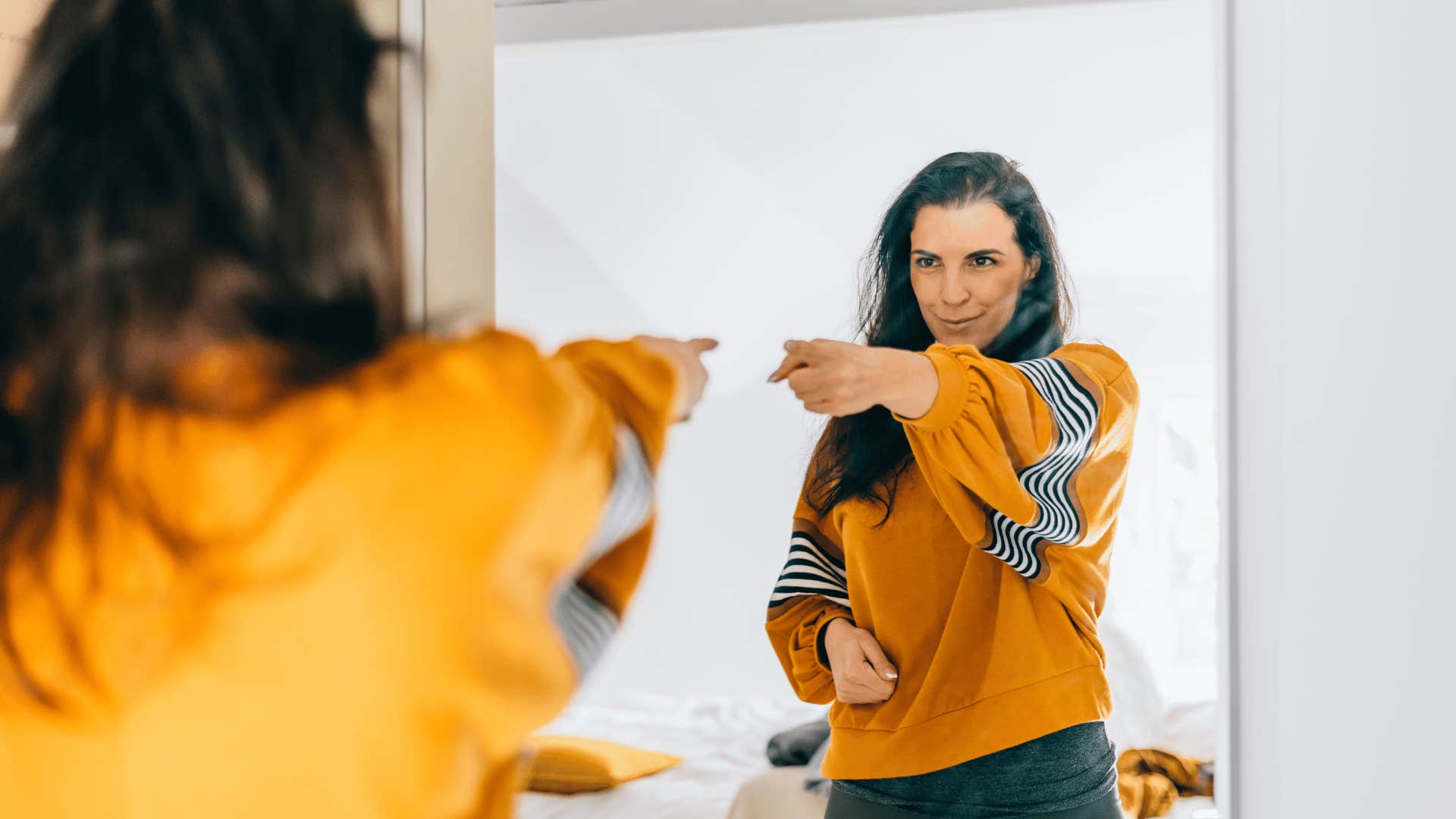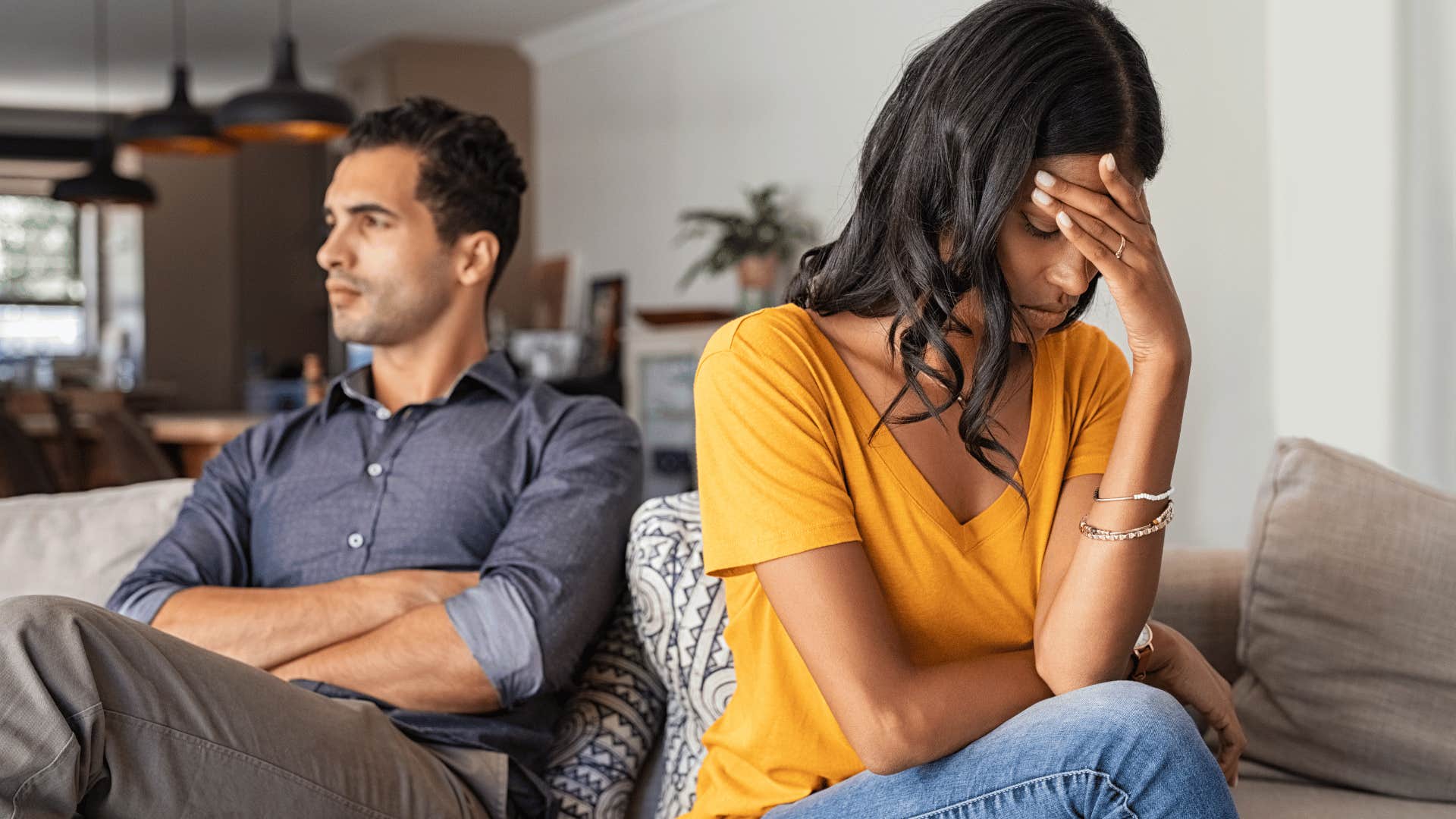I Couldn't Be A Good Wife Until My Therapist Taught Me These 8 Brilliant Things
My therapist shined a light on a marital truths I didn't want to see.
 Andrean Lim | Canva
Andrean Lim | Canva After discovering the codependency issues in my marriage, I was serendipitously led to a retired therapist who lives within walking distance from my house. I needed help (desperately), and I still can't believe my good fortune in finding a therapist so perfectly suited to my specific issues. This man has lived through multiple marriages, good and bad relationships, and has counseled hundreds of couples (if not more) throughout his career and he's never shy about sharing those life experiences with me.
As someone who got married extremely young and struggled to know where my "wifely duties" ended and where my obligations to my well-being began, I needed some guidance. Not only was I given a safe space to vent, cry, and rant, but I left each session with at least one phrase or light-bulb realization that profoundly resonated with me.
I couldn't be a good wife until my therapist taught me these brilliant things:
1. Love is about reciprocity
 Jasmin Wedding Photography / Pexels
Jasmin Wedding Photography / Pexels
On the surface, one might scoff at such a statement. Love isn't contingent on what we get back, right? Love doesn't keep score, doesn't need anything in return, isn't needy. Yet the very basic definition of love — caring about the health, happiness, and well-being of someone over ourselves — should be reciprocal.
If you're in a relationship where you're always giving, giving, giving to the point of depletion, and if you aren't feeling important, cared for, or even considered, then there's something else going on besides love.
Even though the scales won't always be balanced, the love in a marriage should be reciprocal. It's such a basic concept but helped to put things into perspective as to what I'm giving vs. what I'm receiving.
2. Abuse isn't always overt
 RDNE Stock project / Pexels
RDNE Stock project / Pexels
A blunt statement that changed my life. I spent over 5 years in an abusive marriage and I had absolutely no idea. He never hit me, never yelled, never called me hurtful names — and yet the abuse was there, hidden beneath my excuses and justifications for his behavior. Sometimes it takes an objective, outside perspective to shine a light on a truth you didn't want to see.
A group of YourTango relationship experts acknowledged, "There are many forms of abuse, such as emotional, financial, and intimate." Sometimes, when you're too close to the situation, "someone else notices this before you do, so take their perspective into account to reflect on the actions of your partner."
What are some subtle signs of abuse? One study reports that it can look like being afraid to say no to your partner, your partner not admitting they're wrong, and criticism.
3. You can't be the supporter and the enforcer at the same time
 cottonbro studio / Pexels
cottonbro studio / Pexels
This was in the context of my enabler tendencies, but it applies to my marriage and parenting, too. Enforcing boundaries and rules isn't easy (especially for someone like me, who wants to support and love everyone in my life perpetually), but it's important. And, no, it's impossible to be the enforcer and the support system at the same time.
4. Not all relationships are meant to last
 Yuri A / Shutterstock
Yuri A / Shutterstock
Here's a hard truth that transcends every "'til death do us part" vow. My therapist has a Rolodex of examples, some personal, some professional, of relationships that needed to end.
Factors like the natural decline in relationship satisfaction over time, different life stages, incompatibility of values, and the initial honeymoon phase that eventually fades make it crucial to actively work on maintaining a healthy partnership throughout its duration.
Research published in the Journal of Family Theory & Review found that a lack of effective communication, inability to resolve conflicts constructively, and poor listening skills can contribute to relationship breakdown.
Some relationships are toxic and damaging and sometimes a relationship reaches a point where there's nothing left to learn from, no way left to grow together, and has to be let go. That doesn't make the relationship a failure — we learned something from it — it simply makes the relationship over.
5. Physical attraction isn't everything
 Perfect Wave / Shutterstock
Perfect Wave / Shutterstock
Just because I've historically been most attracted to damaged, baggage-carrying men doesn't mean I'm meant to be with them; it just means I might not be as healthy as I assumed. When my therapist told me that his healthiest relationship was the one that started with little to no "spark," I initially felt sad.
How could you be in a relationship where there's no heat, no fireworks? But from a wiser perspective, a "spark" isn't always a green light. In fact, in many cases, it can be a red flag.
In future relationships, I'll ask myself why I'm attracted to a certain man before trusting my reproductive organs. Research tells us physical attractiveness gets you through the door, but it can't keep you at the table. There needs to be more for a relationship to work
6. You can never love anyone until you love yourself
 Hitdelight / Shutterstock
Hitdelight / Shutterstock
This was phrased more like, "Have you reached the realization that you really can't love anyone until you love yourself first?" As if loving myself was a marker on the way to true healthy thinking, a marker I'd eventually pass.
While self-love is crucial for healthy relationships, you can still experience love for others even while working on self-acceptance, and loving another can contribute to your self-love development. Research published by Frontiers in Psychology found that when you love yourself, you're more likely to set healthy boundaries, have a positive self-image, and be less dependent on external validation, leading to more balanced and fulfilling relationships.
Of course, I nodded, given the very familiar cliché that everyone thinks they understand. I'll be honest, it took a good six months of consciously practicing self-love before I realized the depths of that statement.
After finding a more tender, compassionate attitude toward myself, I was able to understand how other people need to be loved. Beyond romantic love, contractual love, tough love, I-love-you-but-I-don't-like-you love, there's the true essence of pure LOVE — in all its warmth and softness, a love that can only be understood through experiencing it from ourselves to ourselves.
7. Not everyone is capable of giving you the love you deserve
 Ground Picture / Shutterstock
Ground Picture / Shutterstock
"Is he capable of loving you?" my therapist asked one day. It was a question I'd wondered many times, as I mulled over his damaged past, his abusive tendencies, and the disease that makes him self-centered and manipulative. Maybe he's loving me the best way he can, but is it enough?
Understanding that not everyone can give you the love you deserve is primarily tied to attachment theory. This theory suggests that our early childhood experiences with caregivers can shape our capacity to form healthy relationships later in life. A study published in Psychological Science found that people with insecure attachment styles may struggle to trust others and receive love fully, leading them to recognize that not every partner can provide the level of love they need.
After asking myself this question in the quiet stillness, the answer was something I always knew, deep down. Maybe we should stop asking our partners, "Do you love me?" and start questioning if they can love us the way that we define love.
Just because he understands love differently, and just because he has certain walls in place that prevent real love from seeping through, doesn't make him a bad person. It's not personal, but it's also not my problem to fix.
8. The best thing you can do for your family is to be healthy
 Yuri A / Shutterstock
Yuri A / Shutterstock
My therapist doesn't define "healthy" by a BMI number or a specific diet. Healthiness, rather, is having a clear mind, strong boundaries, and a pulled-back perspective on life. And being healthy, from that definition, gives us the ability to offer our best selves to our partners and children.
Clear boundaries and a strong sense of self and personal needs are critical in a healthy marriage. By establishing clear limits on what is acceptable behavior within the partnership, they foster mutual respect and trust and prevent resentment. A study published in Imagination, Cognition, and Personality links secure attachment styles to better boundary setting in relationships. Individuals with secure attachments are more comfortable expressing their needs and respecting their partner's boundaries.
If you think you may be experiencing depression or anxiety as a result of ongoing emotional abuse, you are not alone. Domestic abuse can happen to anyone and is not a reflection of who you are or anything you've done wrong. If you feel as though you may be in danger, there is support available 24/7/365 through the National Domestic Violence Hotline by calling 1-800-799-7233. If you’re unable to speak safely, text LOVEIS to 1-866-331-9474.
Michelle Horton is a writer and advocate. Through the Nicole Addimando Community Defense Committee, she speaks out for her sister and the countless other victims of domestic violence criminalized for their acts of survival. She's the author of Dear Sister: A Memoir of Secrets, Survival, and Unbreakable Bonds.

